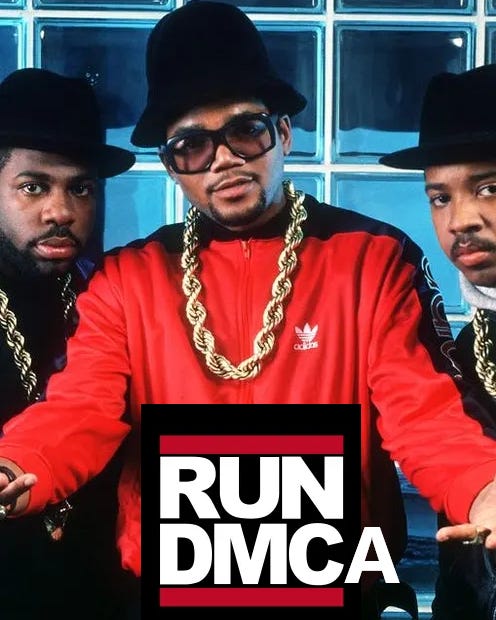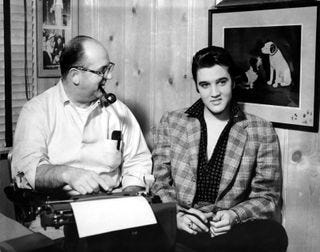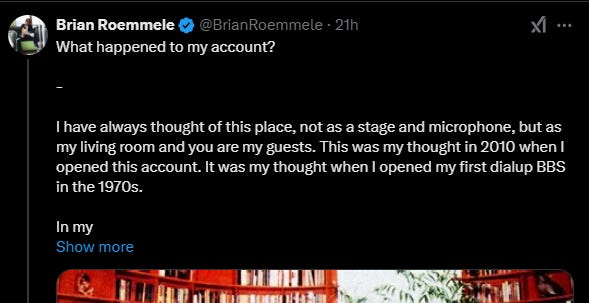"It's Like That" Who owns that remix? For you, a helpful COPYRIGHT MEGAPOST (which includes Megaupload).
Part I. Copyright Law Summary
Part II. For Online AI, etc creators - the DMCA and You
Background
The proliferation of creative content online has been (10x “ten exxed” as we would say in investing), through wide distribution and adoption of AI tools.
AI simply makes creating language, visual, video, and code constant easy and fun — and often instant.
This is part of the marvel of our age. That our content can be remixed in this way and new “permutations” or “interpretations” of prior works can be synthesized, perfected, and launched into the public market.
Copyright exists, many people outside of law do not know, not only to protect original works of authorship, but also to FOSTER the creation of new concepts and ideas.
Despite what people sometimes think about lawyers being arbitrary and mechanical, the Copyright Law which predominates in the West is most insightful in this aspect — it recognizes the earthly reality of creation, that ideas “seed” other ideas, and that all ideas can be drawn back to some prior inspiration
So to use an official, absolute, and запрет/zapret (ban) that most authors would prefer; that no one else can even come anywhere near my work, is unrealistic as it would be (a) practically impossible (b) prohibitively burdensome to police, and most importantly (c) would STOP NEW IDEA CREATION AND ACCESS OF HUMANS TO SAME.
I. The Law of Copyright
And so the law attempts to strike a balance between protection AND leaving room for inspiration inside of the LIMITED USE of the ideas of others.
COPYRIGHT LAW SUMMARY
PROTECTION Copyright law grants creators exclusive rights to their original works, such as books, music, art, or software, allowing them to control how these works are utilized by others. Copyright is owned by the author (or to whom the author assigns those rights, think studio, record label, software company). Legal rights typically last for the creator's lifetime plus a set number of years (often 70), after which the work enters the public domain for free use by anyone.
LIMITED USE BY OTHERS Copyright law balances protection with opportunities for new creators by allowing fair use — permitting limited use of copyrighted material—like quotes or inspiration—without permission, as long as it’s transformative or doesn’t harm the original work’s value.
A NOTICE tells others, making them legally liable, but what all does Copyright include?
Authors control Reproduction: The right to make copies of the work, such as printing a book or duplicating a song.
Authors control Distribution: The right to sell, rent, or otherwise distribute copies of the work to the public.
Authors control Performance: The right to perform the work publicly, like playing music or staging a play.
Authors control Display: The right to show the work publicly, such as exhibiting a painting or screening a film.
Authors control Derivative Works: The right to create adaptations or new works based on the original, like turning a novel into a movie.
Public Transmission: The right to broadcast or transmit the work, such as streaming it online (recognized in some jurisdictions).
Did you think the Colonel and all those handlers were just hanging around on Xanax and drinking sweet tea?
ROYALTIES AND PAYMENTS
Each of these expressions of Copyright get variously hypothecated sold/”leased” to others in exchange (usually) for payment called “Royalties.”
This is why musicians have “agents”, why there are film studios, “options” on books to make a movie out of them, and why in software/code you have something called a “work for hire” (will do that some other time).
More germane to this topic, it is why if you post an AI generated work, which includes the visual or audio or code “original works of authorship” of some “Author” you could be exposing yourself to legal liability, even unknowingly.
And the stakes are high as copyright is first a CRIMINAL matter even as it is also and more frequently expressed as a CIVIL matter. This means on top level of enforcement JAIL and FINES.
[N/B. The largest criminal Copyright case to date is the still pending from 2012 is the mega case against Megaupload and Kim Dotcomm where prosecutors allege USD500m in copyright damages and seek 50+years prison. Defendant lawyers core case is that Copyright is a civil matter under these facts, not criminal.]
II. AI Creators, Copyright, and the DMCA - Online/digital
First, as I have said before, follow Brian Roemmele. A very bright mind who has been in computing since the 1970s, and is deep into AI thought yesterday — a real leader during these times whom I greatly admire.
[I have just learned it is ROM-el-LAY, not ROM-el, as I have been prev saying.]
Brian does more work than anyone (second place is Robert Scoble, (AIC - Giving him rapper name “B-Scoby” or “Bobby Scobs”) daily provide maximum content on AI. Videos, software, audio, music. He is a very prolific worker and poster and excellent.
Which is why I was shocked - SHOCKED joining thousands of others, the other day, to see him and his 15yr old account SUSPENDED - later was said FINAL SUSPENSION from X. [He was since “brought back”, Hallelulia.]
(AIC - Giving him rapper name “B-Roms”)
Before he said it, upon returning, I understood his sudden disappearance was most likely a Copyright and DMCA issue.
If a great man [and decades of content] can be instantly felled online (CNTRL/ALT/DEL), you, great man and great woman around the world, can be too!
Instant Karma’s Gonna Get YOU Online AI Creator it is Only a Matter of Time
ATTENTION:
WHAT YOU NEED TO KNOW AS AN ONLINE AI CREATOR ABOUT THE DMCA
DMCA The Digital Millennium Copyright Act (DMCA) — enacted in 1998 in the US — updates copyright law for the digital age by criminalizing the circumvention of digital protections (like DRM - Digital Rights Management (software gates)), while also providing a "safe harbor" for online platforms that remove infringing content upon notice.
In practice how it works is that Author or Author’s representative will send a DMCA NOTICE to a Website operator stating that they or a THIRD PARTY USING THEIR SITE has posted infringing content.
To prevent itself from being held CRIMINALLY or CIVILLY liable, at most GC/attorney’s standing recommendation, Website will IMMEDIATELY remove the content, and figure out what happened later, or sometimes do nothing at all.
The more AI produced content that is released into the market, due to the prevalence and speed and adoption of AI tools (which often reformulate prior content), the more DMCA Notices (“Strikes”, in online parlance) will be issued.
This is the world we are in right now. As it is. Not as we would have it to be.
You may not take an interest in DMCA.
But DMCA has taken an interest in you, (to quote Run DMC), you Sucker MCs. (“Millenium Copyrightists”)
So do you know what a DMCA Notice is?
It has to do with copyright and a copyright owner sending a notice to a website concerning content posted by a 3rd party user of that website.
I had one client (like Brian Roemmele) whose entire years’ software work was INSTANTLY removed just at the receipt of one by a company which hosted him. One day was building and signing customers and banking revenue and growing. On the morning awoke to find all of it gone (qua ALL), and a notice to call for more information. And months of wrangling (and offline reality, and customers not only leaving but making demands for refunds and for “their information” and multiplying threats of suit from HIS clients) for success.
DMCA NOTICE
A DMCA (Digital Millennium Copyright Act) notice is a formal notification sent by copyright owners to online service providers, informing them that their platform is hosting or linking to material that infringes on the owner's copyright.
This notice serves as a legal tool for copyright holders to request the removal of infringing content from websites and other internet platforms.
WHAT IS DONE WHEN A DMCA NOTICE IS SENT
When a company receives a DMCA notice, it is required to take the following actions:
[AIC: Typically they just jump to 3 (or 4 g) and instantly take down because (a) this immediately stops the risk to the company and (b) this is the cheapest standing legal advice/instruction companies are given at this time.]
1. Respond expeditiously: The company must act quickly to remove or disable access to the allegedly infringing material
2. Notify the user: The service provider usually informs the user, subscriber, or person responsible for the allegedly infringing activity
3. Implement takedown procedures: Companies must establish and follow notice and takedown procedures to handle DMCA complaints
4. Evaluate the notice: The company should (assess whether the notice substantially conforms to the statutory requirements)
[AIC more rarely actually done by Website, this is left to the 3p poster of the content, i.e. you, to compile and advocate (a) because it costs money to do, and (b) because they’ll assume you will do it in your own interest for them]
which include:
a) A physical or digital signature of the copyright owner or authorized agent
b) A description of the copyrighted works claimed to be infringed
c) A description of the allegedly infringing material
d) Contact information of the complainant
e) A statement of that the use is not authorized
f) A statement that the information in the notice is accurate under penalty of perjury g) Remove infringing content: If the notice is valid, the company must take down the infringing material to maintain safe harbor protection and avoid potential liability to the recipient company
h) Allow for counter notices: If the alleged infringer believes the takedown was mistaken, they can submit a counter notice. The service provider must then wait 10-14 days before restoring the content, unless the copyright owner files a lawsuit
i) Implement a repeat infringer policy: Companies must reasonably implement a policy to terminate services for repeat copyright infringers
[This last one I am speculating happened to Brian Roemmele]
By following these procedures, companies can limit their own liability "safe harbor" (qua CYA Ocean) from copyright infringement claims against them (liability) and maintain compliance (kissass) with the DMCA
FAIR USE
Remember this, the thing that “leaves room” for new idea makers to make use of prior ideas to make new great ideas for humankind? Also known as the main defense against a claim of Copyright Infringement.
It comes into play ONLY AFTER THE FACT. After the content is gonzo, which could include your AI-book, AI-movie, AI-software, or any old individual post AI or otherwise.
It could include in the case of SOFTWARE your whole entire money-making enterprise (let me tell you SOFTWARE is subject to Copyright, and do you see all those “Write your own Code with AI”? Suppose you build an entire AI-built company?
Fair use cannot be used to prevent or delay the initial takedown process.
Fair use cannot be used to prevent or delay the initial takedown process.
Fair use cannot be used to prevent or delay the initial takedown process.
A claim of fair use does not stop a service provider from removing content in response to a valid DMCA notice.
Fair use becomes relevant after content has been removed.
Fair use becomes relevant after content has been removed.
“FAIR USE” RELIEF FROM A DMCA TAKEDOWN
AFTER REMOVAL, The content creator can submit a counter-notice asserting fair use, which may lead to the content being restored if the copyright holder doesn't file a lawsuit within 10-14 days
3rd party posters can communicate directly with the copyright holder and try to resolve the issue, especially if there's been a misunderstanding
This DMCA auto-enforcement structure has been obviously criticized for not adequately protecting Fair Use, nor the rights of other Author creators.
It is a nuke not a scud. It is a maul not a chisel. It is an axe not a scalpel. Disposed bathwater > baby.
DMCA: “Kill it, then rule if it should live.”
The DMCA notice-and-takedown (kill, then rule) system can sometimes lead to the removal of content that might be considered (OR HAD ACTUALLY BEEN) Fair Use, as platforms often err on the side of caution to protect themselves and maintain their own safe harbor protections.
Can you see now?
This is why I say Instant Karma’s Gonna Get You, and even if you (may be) in the right!
Please repost/forward/like/share this guide with all of your fellow online AI-enabled creators, you and they need to be aware, know what to do, and communicate together (strength in numbers) about whether or not this is ideal policy.
THANK YOU FOR YOUR READERSHIP AND SUPPORT I HOPE I PROVIDE VALUE TO YOU TODAY PLEASE SHARE RIGHT NOW












